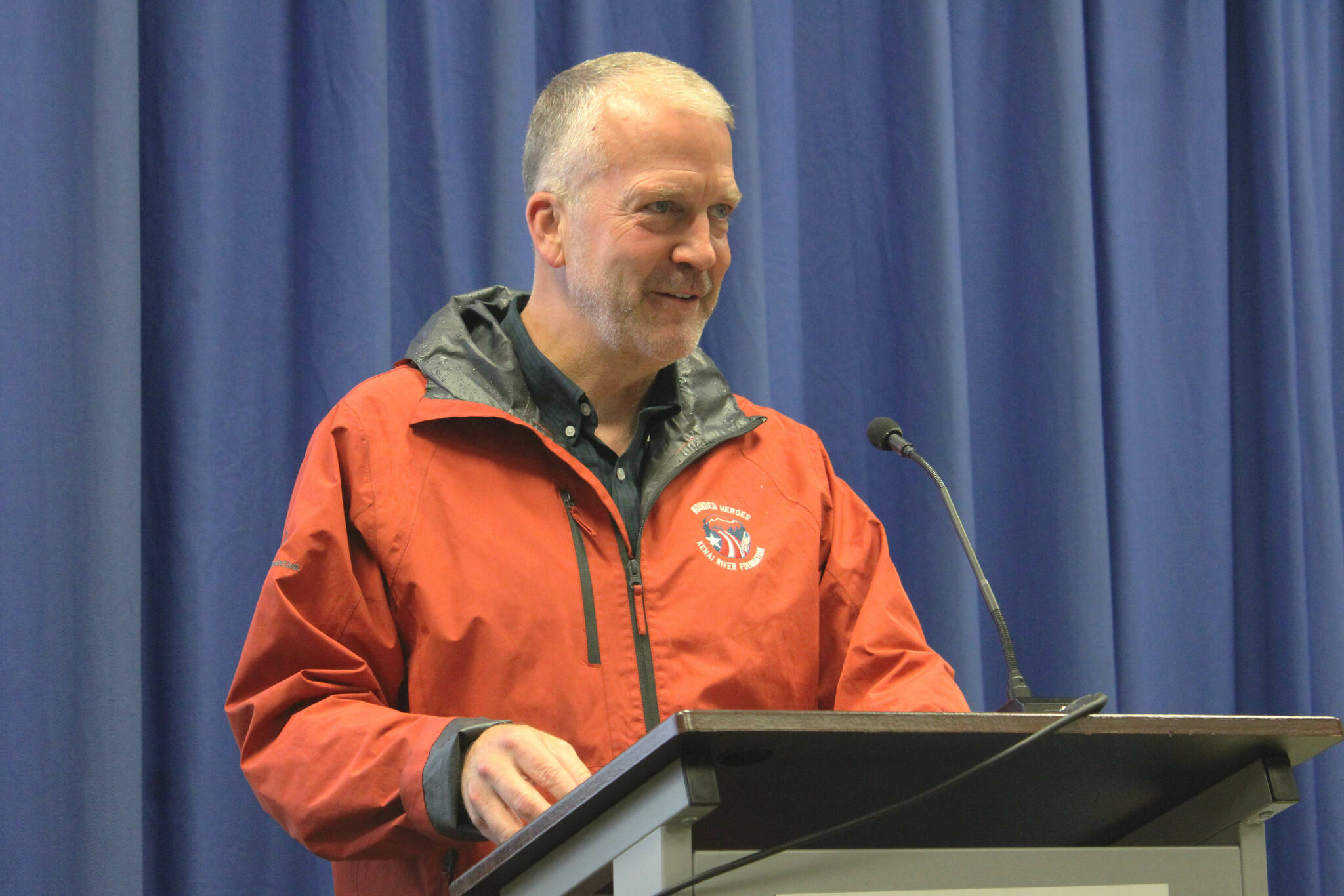A “temporary pause” on export decisions for liquefied natural gas announced by the Biden-Harris Administration on Friday doesn’t affect the long-awaited Alaska LNG Project, but the move drew criticism from all three members of the Alaska’s congressional delegation.
A statement posted online by the federal administration said “climate change is the existential threat of our time” and said that an evolving understanding of the need and supply of LNG — as well as the impact of methane on the planet — prompts a need to review the analyses used by the federal Department of Energy to make those authorizations.
U.S. Sen. Dan Sullivan in a Friday news release said the move will damage “the American workforce” and national security.
“Fortunately, the Alaska LNG project already received all of its export permits and remains a viable source of clean-burning energy for America and our allies,” he said in the release.
He said in the release that American export of natural gas is important to reduce global reliance on Russian exports. That sentiment was echoed by U.S. Sen. Lisa Murkowski in her own Friday release.
Murkowski said that American LNG is important for creating domestic jobs and revenues and provides “an alternative to Russia.”
U.S. Rep. Mary Peltola in a third release also published Friday similarly criticized the decision.
“We should be celebrating the fact that America is exporting more energy, instead of forcing ourselves and our allies to rely on other countries with worse labor and environmental standards for their future energy needs,” Peltola said. “While this decision does not impact the existing export approval for the Alaska LNG project, it does send a message that future LNG development in Alaska is at risk.”
The Alaska LNG Project, per previous Clarion reporting, is a proposed 800-mile pipeline that would move gas from the North Slope to Nikiski — to be shipped overseas.
The project would also require construction of a gas treatment plant on the North Slope and a liquefaction facility in Nikiski.
The project has historically been championed by Kenai Peninsula Borough Mayor Peter Micciche, who said “the Kenai is ready” during a June presentation by the Alaska Gasline Development Corporation in Kenai.
At that meeting, corporation president, Frank Richards, said that several factors supported the project finally coming to fruition. He cited increased demand for energy not from Russia, approval from the Biden administration, and demand for the product in Southcentral Alaska — which is facing a shortage of natural gas as soon as 2027.
Environmental concerns and questions about a contemporary reinvestment in oil and gas were raised at the meeting.
Larry Persily, who describes himself as a journalist focused on oil and gas issues, resource development, taxes and the state’s unsolved fiscal problems, has long criticized the project.
During a presentation in November to the Kenai Peninsula Showcase, titled “Gasonomics,” he spoke about the “extreme unlikelihood” of the project ever coming to pass. He cited declining interest in Asian markets and tremendous cost for construction.
Asian markets have regularly been described as a key element of the project by Sen. Sullivan. He has made multiple trips — most recently in June — to Japan and South Korea to develop relationships connected to Alaska LNG. The Wall Street Journal in July published a story that said Japanese and South Korean buyers aren’t interested in Alaska LNG.
More information about the Alaska LNG Project can be found at alaska-lng.com.
Reach reporter Jake Dye at jacob.dye@peninsuaclarion.com.


